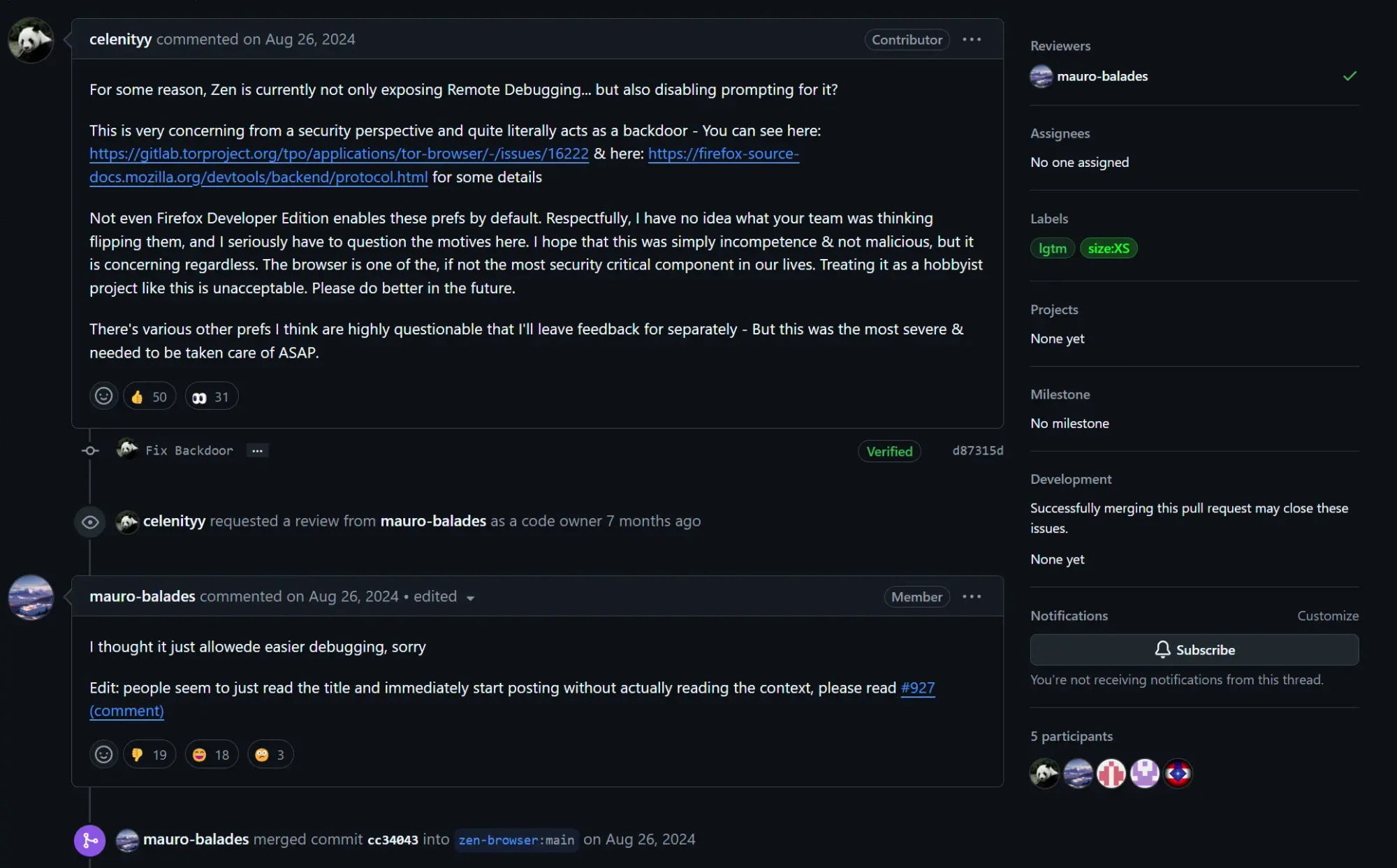The Zen Browser Slip-Up
Zen Browser enabled remote debugging by default—without prompting users. That's not just bad practice; it’s a serious privacy risk masquerading as developer convenience.

Zen Browser, a rising star in the custom browser world, just learned a lesson the hard way: privacy isn't a "nice-to-have" it's the foundation.
Back in August 2024, a contributor flagged a glaring issue. Zen wasn’t just exposing remote debugging functionality; it had disabled the prompt for it, too. That’s the kind of move that sets off alarm bells for anyone serious about security. When a browser opens a remote debugging port without user consent, it effectively introduces a soft backdoor. And if you think that sounds dramatic, check the Tor Project’s stance on this. Even Firefox Developer Edition doesn't go this far by default.

The contributor, @celenityy, didn’t mince words and rightly so. They called out the configuration for what it was: a security risk that should never have been enabled in production. Zen’s lead developer responded, claiming the setting was only intended to help with early-stage debugging. The justification? Zen was still a "toy project" back then.
But here's the problem: Zen wasn’t a toy project anymore. Real users were already relying on it daily, and decisions like these don’t scale well when your user base grows. Security risks that were tolerable in month one become irresponsible by month six. And flipping on a potentially dangerous feature just to save developer time? That’s a tradeoff no privacy-focused project can afford to make.
Even more troubling is the attempt to downplay the mistake after the fact. Statements like “it’s not because of inexperience” followed immediately by “we underestimated the risk” don’t exactly instill confidence. Either you didn’t understand the implications, or you knowingly ignored them. Neither is good.
To make matters worse, Zen still trails behind even stock Firefox in core privacy protections. Social trackers are selectively allowed, unsigned extensions are enabled by default, and Enhanced Tracking Protection isn’t fully implemented. All while branding itself as a privacy-first browser.
This isn’t just a callout it’s a reminder: if you’re building tools people trust to protect their digital lives, that trust has to be earned and re-earned every single day. Convenience for developers is never an excuse for putting users at risk.
Zen has potential. Its UI work and theming are genuinely impressive. But privacy can’t be an afterthought. It has to be the first line of code.
Relevant documentation:




